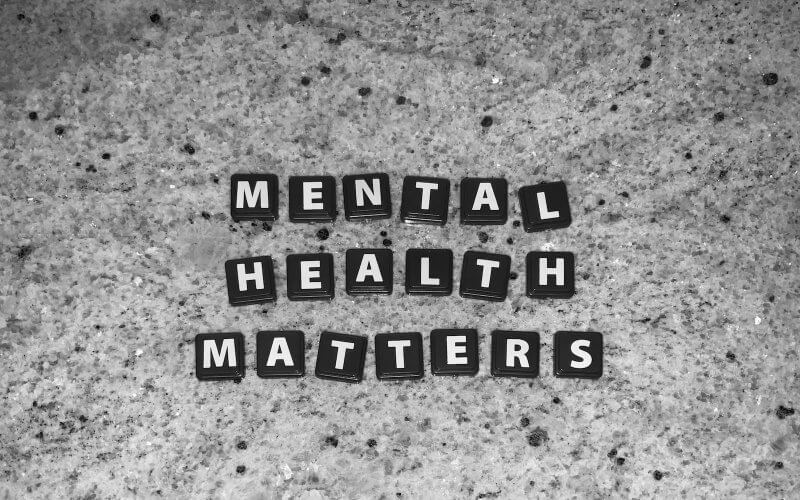Mental health conditions affect millions of people worldwide, and seeking appropriate treatment is crucial for managing these conditions effectively. While therapy, lifestyle changes, and support networks play a vital role in mental health care, medication can also be an essential component of treatment for many individuals. Medications used to treat mental health issues, such as depression, anxiety, and bipolar disorder, can help alleviate symptoms and improve overall well-being. However, it’s important to understand both the benefits and risks associated with using these medications. In this article, we will explore the advantages and potential drawbacks of using medication to treat mental health issues.
The Benefits of Medication
1. Symptom Relief and Improved Functioning
One of the primary benefits of using medication for mental health conditions is symptom relief. Medications can help manage symptoms such as persistent sadness, anxiety, mood swings, or hallucinations, allowing individuals to regain a sense of normalcy and improve their daily functioning. For example, selective serotonin reuptake inhibitors (SSRIs) like fluoxetine (Prozac) are commonly prescribed to treat depression, while lorazepam (Ativan) is often used for managing acute anxiety symptoms.
2. Increased Quality of Life
By effectively managing symptoms, medication can significantly enhance an individual’s quality of life. It can improve sleep patterns, boost energy levels, reduce irritability, and help individuals engage more fully in their personal and professional lives. For instance, lithium is a medication commonly prescribed to stabilize mood in individuals with bipolar disorder, enabling them to maintain a more stable and fulfilling life.
3. Complementary Treatment
Medication can work in tandem with other treatment approaches, such as therapy or lifestyle modifications, to provide comprehensive care. It can help individuals engage more effectively in therapy by reducing symptoms that may hinder their ability to participate fully. Medication can also act as a stabilizing force, allowing individuals to implement positive lifestyle changes, such as exercise, meditation, and healthy sleep habits, which further contribute to overall well-being.
4. Preventing Relapse
For individuals with chronic mental health conditions, medication can be essential in preventing relapse. By maintaining symptom control over the long term, medication can help individuals stay on track with their treatment plan, reducing the likelihood of experiencing severe episodes or setbacks. Medications like aripiprazole (Abilify) are commonly used as maintenance treatment for individuals with bipolar disorder to prevent relapse.
The Risks of Medication
1. Side Effects
Like any medication, psychiatric medications can have potential side effects. These side effects vary depending on the specific medication and individual factors. Common side effects may include drowsiness, weight gain, sexual dysfunction, or gastrointestinal issues. For example, sertraline (Zoloft), an SSRI used to treat depression and anxiety, may cause side effects such as nausea, headaches, or insomnia in some individuals. It’s important to note that not everyone will experience side effects, and they can often be managed with the help of healthcare providers.
2. Individual Variations in Effectiveness
Different medications work differently for each person, and finding the right medication and dosage may require some trial and error. What works well for one individual may not be as effective for another. It’s essential to work closely with a healthcare provider to find the medication that best suits your needs. Regular communication with your healthcare provider is important to monitor the medication’s effectiveness and make any necessary adjustments.
3. Dependency and Withdrawal
Some medications used to treat mental health conditions, such as benzodiazepines, have the potential for dependency and withdrawal symptoms. Benzodiazepines like alprazolam (Xanax), when used long-term, can lead to physical and psychological dependence. Abruptly stopping these medications can result in withdrawal symptoms such as rebound anxiety or insomnia. It’s important to work with a healthcare provider to develop a safe and gradual tapering plan if discontinuing these medications.
4. Potential Interactions with Other Medications
Certain psychiatric medications can interact with other medications or substances, including over-the-counter drugs and herbal supplements. These interactions can affect the effectiveness or increase the risk of side effects. It’s crucial to inform your healthcare provider about all medications and supplements you are taking to ensure their compatibility and prevent any potential adverse reactions.
Making Informed Decisions
When considering medication as part of your mental health treatment plan, it’s essential to make informed decisions in collaboration with your healthcare provider. Here are some key steps to follow:
- Open Communication: Maintain open and honest communication with your healthcare provider. Discuss your concerns, goals, and expectations regarding medication treatment.
- Educate Yourself: Learn about the specific medication(s) prescribed to you. Understand their potential benefits, side effects, and any necessary precautions. Websites like RxGo provide valuable information and resources on various medications.
- Regular Monitoring: Stay in close contact with your healthcare provider during medication treatment. Regular check-ins and evaluations will help assess the medication’s effectiveness and address any concerns or side effects that may arise.
- Lifestyle Support: Continue to prioritize healthy lifestyle habits alongside medication treatment. Incorporate therapy, exercise, proper nutrition, and stress management techniques into your routine to support overall mental well-being.
Remember, medication is just one component of a comprehensive mental health treatment plan. Collaborating with your healthcare provider and utilizing available resources like RxGo’s prescription discount card can help you access affordable medication options. With the right support and informed decision-making, you can find a treatment approach that works best for you and promotes your overall mental wellness.
Note: The information provided in this article is for educational purposes only and should not be substituted for professional medical advice. Always consult with your healthcare provider for personalized guidance and treatment options.

